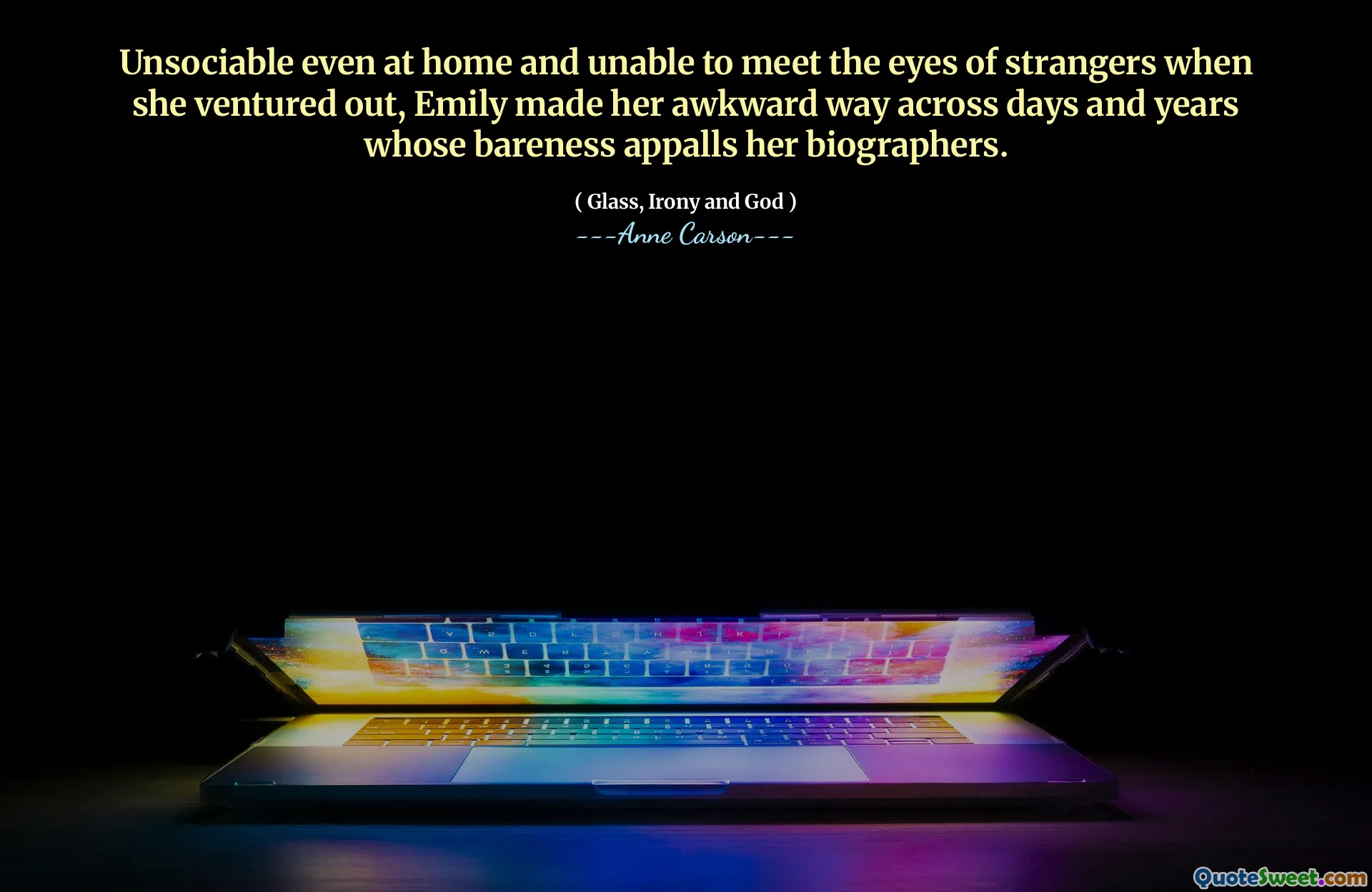
Unsociable even at home and unable to meet the eyes of strangers when she ventured out, Emily made her awkward way across days and years whose bareness appalls her biographers.
This excerpt delves into the profound solitude and internal reticence experienced by Emily, likely referring to Emily Dickinson. Her unsociability, even within the confines of her own home, suggests a deeply rooted inner world haunted by introspection or perhaps social anxieties. The inability to meet strangers’ eyes when venturing out signals a struggle with social presence, a barrier that distances her from external interactions. Yet, despite this apparent detachment, Emily navigates through time—'across days and years'—implying a long-standing, enduring solitude that shapes her existence.
The phrase 'whose bareness appalls her biographers' captures an almost painful awareness of her own life—its starkness and absence of conventional social engagement. Biographers, often external witnesses, find her life empty or barren, yet Emily’s internal experience might be painted as one of intense, perhaps unspoken, richness. Such loneliness, while seemingly negative, often breeds a unique depth of thought, creativity, and sensitivity. We see here a reflection on the ambiguity of solitude: it can be destructive but also a fertile ground for self-discovery and artistic expression.
Considering the historical context, many solitary writers and thinkers found in their isolation a muse and a refuge from the noise of the outside world. Emily’s steadfast journey—awkward and solitary—acknowledges the human condition of sometimes feeling alien within oneself and among others. The quote ultimately invites us to contemplate the complex interplay between inward solitude and outward expression, the personal quiet that can shape one’s narrative beyond what biographers perceive—highlighting that even the most barren-seeming lives hold profound depths.
— Anne Carson, Glass, Irony and God






